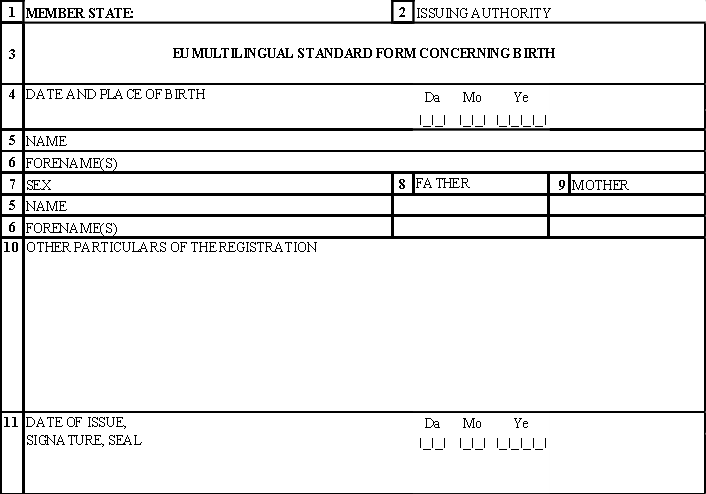BLK-307 School Trip Of The School Of Deviation 35
The BLK-307 School Trip to Deviation 35, organized by the School of Deviation 35, marked an important educational excursion aimed at providing students with experiential learning outside the traditional classroom setting. This trip was designed to foster curiosity, enhance understanding of the unique environment of Deviation 35, and promote social interaction among students. With careful planning and a focus on safety, the journey offered students an opportunity to explore new terrains, observe distinctive features of the area, and reflect on their experiences. The following article provides a comprehensive overview of this notable school trip, from preparations to reflections, highlighting the significance of this educational adventure.
Overview of the BLK-307 School Trip to Deviation 35
The BLK-307 School Trip to Deviation 35 was a carefully coordinated excursion that aimed to immerse students in the distinctive landscape and features of Deviation 35. Known for its unusual topography and environmental characteristics, Deviation 35 presented an ideal setting for hands-on learning and exploration. The trip involved students from various grade levels, fostering a sense of community and shared discovery. Throughout the visit, students engaged in guided tours, interactive activities, and observational exercises designed to deepen their understanding of the area’s ecological and geological significance. The trip also served as a platform for students to develop observational skills, critical thinking, and environmental awareness.
The trip was scheduled over a two-day period, allowing ample time for exploration and reflection. Teachers and organizers aimed to balance educational content with recreational activities to ensure an engaging experience for all participants. The excursion was also an opportunity for students to connect with nature, learn about conservation efforts, and appreciate the uniqueness of Deviation 35. Overall, the trip was regarded as a successful educational outing that enriched students’ knowledge and fostered a sense of curiosity about the natural world.
Participants included not only students but also accompanying teachers, volunteer guides, and safety personnel. The itinerary was designed to maximize educational value while maintaining a manageable pace for young learners. The trip’s success relied heavily on meticulous planning, coordination among staff, and effective communication with students and parents. The experience aimed to leave a lasting impression on students, encouraging them to pursue further learning about environmental and geological sciences.
This excursion was also notable for its emphasis on experiential learning, where students could observe real-world phenomena firsthand. The area of Deviation 35 offered a rare glimpse into natural formations and environmental processes that are seldom encountered in standard classroom settings. The trip’s overarching goal was to inspire curiosity, promote environmental stewardship, and enhance the students’ appreciation for the natural environment surrounding them.
In essence, the BLK-307 School Trip to Deviation 35 was more than a mere outing; it was an educational journey designed to broaden students’ horizons and instill a lifelong interest in ecological and geological sciences. The trip’s organization reflected a commitment to providing meaningful, safe, and engaging learning experiences outside the conventional classroom environment.
Planning and Preparations for the School Excursion
The planning phase for the BLK-307 School Trip to Deviation 35 began several months prior to the scheduled departure date, emphasizing thoroughness and attention to detail. Teachers, coordinators, and environmental experts collaborated to develop a comprehensive itinerary that balanced educational objectives with safety considerations. The planning process involved researching Deviation 35’s environmental features, designing age-appropriate activities, and establishing logistical arrangements to facilitate smooth execution. Additionally, a detailed risk assessment was conducted to identify potential hazards and develop mitigation strategies.
One of the critical aspects of preparation was securing necessary permissions and informing parents about the trip’s objectives, schedule, and safety protocols. Parent meetings were organized to address concerns, distribute consent forms, and provide information about packing essentials and health precautions. Students were briefed on behavior expectations, environmental respect, and safety rules to ensure responsible participation. Teachers also conducted preparatory lessons to familiarize students with the area’s ecological significance and the activities planned during the excursion.
Logistical arrangements included transportation, accommodation (if applicable), meals, and emergency contacts. Arrangements for comfortable, safe transport were made through licensed service providers, with contingency plans in place for delays or unforeseen circumstances. Equipment such as binoculars, maps, first aid kits, and communication devices were prepared to facilitate on-site activities. Special attention was given to accessibility needs and ensuring that all students could participate fully in the planned activities.
A team of volunteer guides and environmental specialists was enlisted to provide expert insights during the trip. Training sessions were held to brief guides on safety procedures, educational content, and student engagement strategies. The organizers also coordinated with local authorities and environmental agencies to ensure compliance with regulations and to facilitate access to key sites within Deviation 35. These meticulous preparations aimed to create a safe, educational, and enjoyable experience for everyone involved.
Throughout the planning process, feedback from previous trips and best practices were incorporated to improve logistical efficiency and safety standards. The collaboration among teachers, parents, guides, and local authorities exemplified a community effort to prioritize student well-being and educational value. Ultimately, the comprehensive planning and preparations laid the foundation for a successful and enriching school excursion to Deviation 35.
Key Destinations and Activities During the Trip
During their visit to Deviation 35, students engaged in a variety of destinations and activities that highlighted the area’s unique environmental features. The trip’s itinerary included visits to geological formations, ecological observation points, and natural landmarks that showcased the area’s distinctive topography and biodiversity. Guided tours led by environmental experts provided detailed explanations of the geological processes that created Deviation 35’s unusual landscape, captivating students’ curiosity and fostering deeper understanding.
One of the primary destinations was the Observation Hill, where students could view the expansive terrain and take in panoramic vistas of the surrounding environment. Here, students participated in activities such as landscape sketching and environmental mapping, which encouraged active observation and artistic expression. Another key site was the Formation Caves, where students learned about natural erosion and sedimentation processes through interactive demonstrations and exploration. These sites offered hands-on learning opportunities that connected theoretical knowledge with real-world phenomena.
In addition to site visits, students participated in ecological activities such as bird watching, plant identification, and water quality testing. These activities aimed to develop observational skills, scientific inquiry, and environmental stewardship. Workshops on conservation practices and the importance of protecting natural habitats were integrated into the itinerary, emphasizing the trip’s educational objectives. Students also engaged in team-building exercises and outdoor games designed to promote cooperation and communication skills.
Throughout the trip, students had the chance to document their experiences through photography, journaling, and group presentations. These activities encouraged reflection and helped consolidate their learning. Evening sessions included storytelling and discussions about the ecological importance of Deviation 35, fostering a sense of connection and responsibility toward the environment. The diverse range of destinations and activities ensured that students remained engaged and motivated to learn beyond traditional classroom methods.
The trip’s activities were carefully designed to be age-appropriate, interactive, and educational, ensuring that students gained meaningful insights into geological and ecological concepts. The combination of exploration, observation, and hands-on experiments created a dynamic learning environment that catered to different learning styles. Ultimately, the destinations and activities during the trip provided a comprehensive and immersive experience that highlighted the natural wonders of Deviation 35.
Student Experiences and Observations Throughout the Journey
Throughout the journey to Deviation 35, students exhibited a range of reactions and observations that underscored the trip’s educational and experiential value. Many students expressed awe at the natural formations and landscapes, capturing their wonder through sketches, photographs, and detailed notes. The opportunity to observe geological features firsthand sparked curiosity and prompted questions about earth sciences and environmental processes. Students also shared insights about the importance of preserving such unique landscapes for future generations.
During guided tours and exploration activities, students actively participated by asking questions, taking measurements, and engaging in collaborative discussions. Several students noted the contrast between their classroom lessons and the real-world environment, highlighting the trip’s effectiveness in bringing scientific concepts to life. Many observed specific flora and fauna, making connections between their observations and ecological theories learned in class. These firsthand experiences deepened their understanding and fostered a sense of environmental responsibility.
Students also demonstrated teamwork and leadership skills during group activities, often taking initiative to document their findings or assist peers. The outdoor setting encouraged open communication, problem-solving, and adaptive thinking, which were evident in their enthusiastic participation. Some students shared personal reflections about feeling more connected to nature, expressing a newfound appreciation for environmental conservation. These observations underscored the trip’s role in inspiring interest and fostering personal growth.
Throughout the journey, students kept journals and engaged in reflective discussions, capturing their observations and emotional responses. Many noted the tranquility and beauty of Deviation 35, contrasting it with urban environments and emphasizing the importance of natural preservation. The diverse experiences—from observing geological formations to participating in conservation workshops—contributed to a holistic understanding of the area’s ecological significance. Overall, students’ experiences highlighted the trip’s success in creating meaningful, memorable, and educational encounters.
The observations made during the trip also revealed varying levels of curiosity and engagement among students, with some eagerly exploring every site and others initially hesitant but gradually becoming more involved. Teachers observed increased confidence and enthusiasm as students interacted with guides and participated in activities. These experiences demonstrated the trip’s impact on fostering a deeper appreciation for the environment and encouraging active learning. The journey to Deviation 35 proved to be a transformative experience for many students, broadening their perspectives and inspiring ongoing environmental interest.
Safety Measures and Logistical Details Ensuring a Smooth Trip
Ensuring safety was a top priority throughout the planning and execution of the BLK-307 School Trip to Deviation 35. A comprehensive safety protocol was established, including risk assessments, emergency response plans, and clear guidelines for student behavior. Teachers and guides were trained to handle various situations, from minor injuries to environmental hazards, ensuring that all staff were prepared to respond promptly and effectively. The team also maintained constant communication via radios and mobile devices to coordinate activities and address any concerns immediately.
Students were briefed extensively on safety rules before and during the trip, covering topics such as staying within designated areas, respecting natural formations, and avoiding risky behaviors












